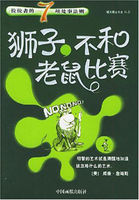"Why, Mr.Beecher! How can we? Isn't Edward with you?""You are keeping me waiting for you," was the quiet and firm answer.
There was a moment's hesitation.Then the door opened and the figures of the two girls appeared.
"Now, turn up the gas, please, as it was," said Mr.Beecher.
"But, Mr.Beecher--"
"You heard me?"
Up went the light, and the two beautiful girls of the box stood in their night-dresses.
"Now, why did you run away?" asked Mr.Beecher.
"Why, Mr.Beecher! How can you ask such a question?" pouted one of the girls, looking at her dress and then at Edward.
"Exactly," said Mr.Beecher."Your modesty leads you to run away from this young man because he might possibly see you under a single light in dresses that cover your entire bodies, while that same modesty did not prevent you all this evening from sitting beside him, under a myriad of lights, in dresses that exposed nearly half of your bodies.That's what I call a distinction with a difference--with the difference to the credit neither of your intelligence nor of your modesty.There is some modesty in the dresses you have on: there was precious little in what you girls wore this evening.Good night.""You do not believe, Mr.Beecher," Edward asked later, "in decollete dressing for girls?""No, and even less for women.A girl has some excuse of youth on her side; a woman none at all."A few moments later he added:
"A proper dress for any girl or woman is one that reveals the lady, but not her person."Edward asked Mrs.Beecher one day whether Mr.Beecher had ever expressed an opinion of his sister's famous book, Uncle Tom's Cabin, and she told this interesting story of how the famous preacher read the story:
"When the story was first published in The National Era, in chapters, all our family, excepting Mr.Beecher, looked impatiently for its appearance each week.But, try as we might, we could not persuade Mr.
Beecher to read it, or let us tell him anything about it.
"'It's folly for you to be kept in constant excitement week after week,'
he would say.'I shall wait till the work is completed, and take it all at one dose.'
"After the serial ended, the book came to Mr.Beecher on the morning of a day when he had a meeting on hand for the afternoon and a speech to make in the evening.The book was quietly laid one side, for he always scrupulously avoided everything that could interfere with work he was expected to do.But the next day was a free day.Mr.Beecher rose even earlier than usual, and as soon as he was dressed he began to read Uncle Tom's Cabin.When breakfast was ready he took his book with him to the table, where reading and eating went on together; but he spoke never a word.After morning prayers, he threw himself on the sofa, forgot everything but his book, and read uninterruptedly till dinner-time.
Though evidently intensely interested, for a long time he controlled any marked indication of it.Before noon I knew the storm was gathering that would conquer his self-control, as it had done with us all.He frequently 'gave way to his pocket-handkerchief,' to use one of his old humorous remarks, in a most vigorous manner.In return for his teasing me for reading the work weekly, I could not refrain from saying demurely, as I passed him once: 'You seem to have a severe cold, Henry.
How could you have taken it?' But what did I gain? Not even a half-annoyed shake of the head, or the semblance of a smile.I might as well have spoken to the Sphinx.
"When reminded that the dinner-bell had rung, he rose and went to the table, still with his book in his hand.He asked the blessing with a tremor in his voice, which showed the intense excitement under which he was laboring.We were alone at the table, and there was nothing to distract his thoughts.He drank his coffee, ate but little, and returned to his reading, with no thought of indulging in his usual nap.His almost uncontrollable excitement revealed itself in frequent half-suppressed sobs.
"Mr.Beecher was a very slow reader.I was getting uneasy over the marks of strong feeling and excitement, and longed to have him finish the book.I could see that he entered into the whole story, every scene, as if it were being acted right before him, and he himself were the sufferer.He had always been a pronounced Abolitionist, and the story he was reading roused intensely all he had felt on that subject.
"The night came on.It was growing late, and I felt impelled to urge him to retire.Without raising his eyes from the book, he replied:
"'Soon; soon; you go; I'll come soon.'
"Closing the house, I went to our room; but not to sleep.The clock struck twelve, one, two, three; and then, to my great relief, I heard Mr.Beecher coming up-stairs.As he entered, he threw Uncle Tom's Cabin on the table, exclaiming: 'There; I've done it! But if Hattie Stowe ever writes anything more like that I'll--well! She has nearly killed me.'
"And he never picked up the book from that day."Any one who knew Henry Ward Beecher at all knew of his love of books.He was, however, most prodigal in lending his books and he always forgot the borrowers.Then when he wanted a certain volume from his library he could not find it.He would, of course, have forgotten the borrower, but he had a unique method of tracing the book.
One evening the great preacher suddenly appeared at a friend's house and, quietly entering the drawing-room without removing his overcoat, he walked up to his friend and said:
"Rossiter, why don't you bring back that Ruskin of mine that I lent you?"The man colored to the roots of his hair."Why, Mr.Beecher," he said, "I'll go up-stairs and get it for you right away.I would not have kept it so long, only you told me I might."At this Beecher burst into a fit of merry laughter."Found! Found!" he shouted, as he took off his overcoat and threw himself into a chair.















